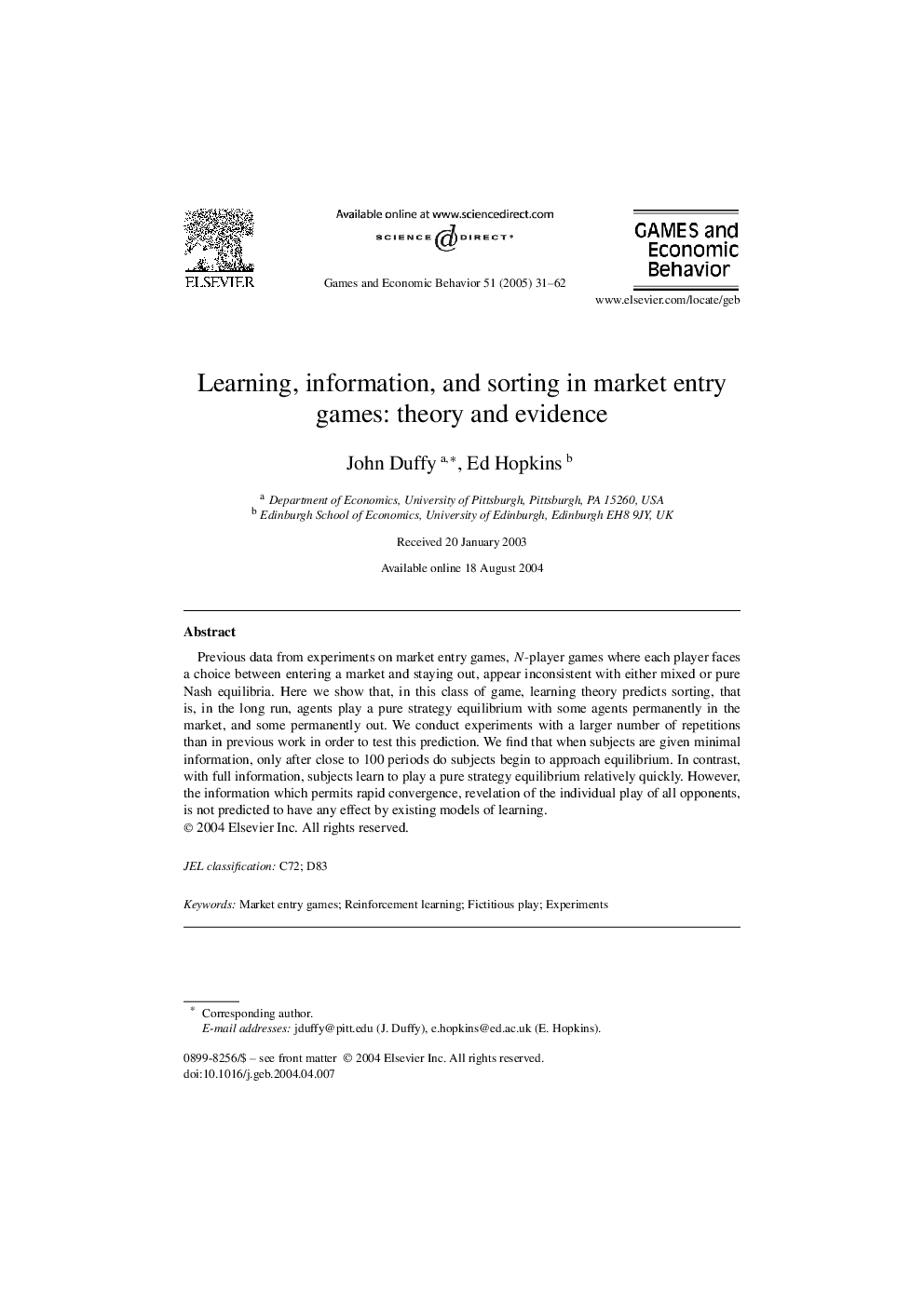| Article ID | Journal | Published Year | Pages | File Type |
|---|---|---|---|---|
| 9551761 | Games and Economic Behavior | 2005 | 32 Pages |
Abstract
Previous data from experiments on market entry games, N-player games where each player faces a choice between entering a market and staying out, appear inconsistent with either mixed or pure Nash equilibria. Here we show that, in this class of game, learning theory predicts sorting, that is, in the long run, agents play a pure strategy equilibrium with some agents permanently in the market, and some permanently out. We conduct experiments with a larger number of repetitions than in previous work in order to test this prediction. We find that when subjects are given minimal information, only after close to 100 periods do subjects begin to approach equilibrium. In contrast, with full information, subjects learn to play a pure strategy equilibrium relatively quickly. However, the information which permits rapid convergence, revelation of the individual play of all opponents, is not predicted to have any effect by existing models of learning.
Related Topics
Social Sciences and Humanities
Economics, Econometrics and Finance
Economics and Econometrics
Authors
John Duffy, Ed Hopkins,
